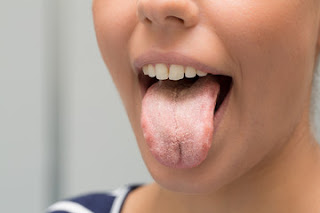Nursing a baby comes with its own fair share of challenges one of this being thrush infections. A thrush infection mostly comes about when a mom has a cracked or bruised nipple; through this tiny wound, the candida fungus will get a way to get into your breast or nipple and cause you to have thrush infections.
You could also get infected with a thrush infection if you or your baby is on an antibiotic medication. Antibiotics are quite helpful when it comes to reducing the bacteria in one’s body. However, these drugs also provide a conducive environment for the candida fungus (oral candidiadis) to thrive.
Nursing as well provides a perfect condition for thrush to flourish; candida fungus thrives in places that are sugary, warm and moist, which is the best description of your little one’s mouth during nursing.
If your baby’s mouth is infected with thrush, then you can be certain that your nipples will eventually get infected as well. If left untreated, thrush can be passed back and forth between a mom and her baby.
ALSO READ: 5 Effective Natural Treatments for Oral Thrush
Signs and symptoms of a thrush infection in a nursing mom
You most probably have a thrush infection if you have:
- Cracked or bruised nipples that heal in a super slow manner especially even after ensuring that your little one is latching on properly.
- Soreness during breastfeeding after a long period of painless nursing sessions. If you have thrush, you will notice that the pain will become more intense as you continue to nurse your baby. In fact, this pain can last for about one hour or more after breastfeeding.
- Your nipple changing in color; they become a little bit shiny, pink or red.
- Your breasts will also experience a persistent burning sensation.
- The nipples become too sensitive to touch and cause you to experience itchiness; at such a time, most moms prefer fitting tops to loose tops as they are more comfortable.
Furthermore, it is worth noting that other problems aside from a thrush infection could be the reason you are experiencing cracked, sore or painful nipples. Pain during nursing could be as a result of your baby’s improper latch. Therefore, it is advisable to visit your doctor to determine the real cause of your pain.
Also, if you are or plan on pumping milk for your baby, you should opt for an expert reviewed, closed system breast pump and avoid the cheap open system options. The Spectra USA S2(your aff link here) is a very solid hospital-grade closed system pump that is highly recommended by many pediatricians and comes with a very affordable price tag.
Signs and symptoms of thrush in a baby
The one sure sign that your baby has thrush is the appearance of white patches that resemble milk curds on the tongue, roof of the mouth and gums. These patches cannot be wiped off easily and if you touched them, you will realize that the base is still raw causing them to bleed.
You will also realize that your baby is restless and very unsettled; a baby who has thrush will only feed for a short period of time. The poor baby keeps pulling away from your breasts during nursing because their mouth is experiencing a great deal of soreness.
In some cases, the thrush in your baby’s mouth can pass through their digestive system and cause the infant to suffer from nappy rash. This rash has a moist and sore appearance with white or red spots.
SEE ALSO:- Infographic: Natural Ways To Increase Breast Size
Treating thrush passed on through breastfeeding
Once you are diagnosed with thrush from breastfeeding, the doctor or practitioner will prescribe an antifungal gel or cream that will be able to treat your thrush infection. You are required to apply this gel to your breasts more so the nipple region immediately after nursing your baby.
You are also to wipe off any traces of the antifungal gel before feeding your little one; this gel does not harm your baby in any way but it is only logical to wipe off any visible gel left on your nipples before breastfeeding him or her. If the infant is found to have a thrush infection as well, the doctor will prescribe a gel or cream that should be dabbed lightly on the infected areas; the mouth and the bottom areas. After some time you will realize that the infection has started to clear up; but even then, continue with the treatment for as long as you are advised by the doctor.
As you continue taking your medication, you could adopt the following practices to make certain that thrush infections do not recur.
- Sterilize dummies, your breasts, bottles, and breast pump parts.
- Clean thoroughly or sterilize any gadget that your baby puts in their mouth.
- Make certain that people in your family do not share towels.
- When washing your clothes and those of your baby, ensure that they are washed at 60 degrees Celsius to eliminate all the fungus.
- Wash your hands after applying the antifungal gel or cream or after changing your baby’s nappies.
YOU SHOULD READ: Top 10 Diseases That Affect Women In 2018
References:
Candida and the Lactating Breast: http://journals.sagepub.com/doi/abs/10.1177/089033449100700414
AUTHOR BIO:
Natalie is a pregnancy consultant and mother of two. You can read more of her content on Maternityathome.com or follow her on Twitter(https://twitter.com/










